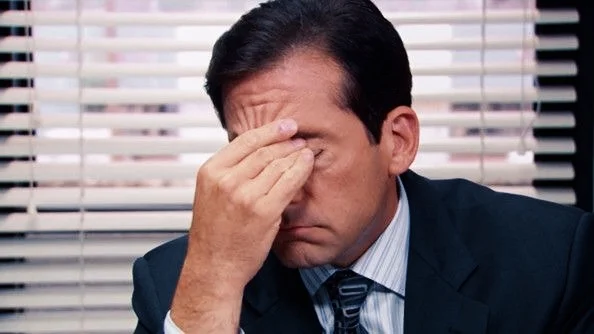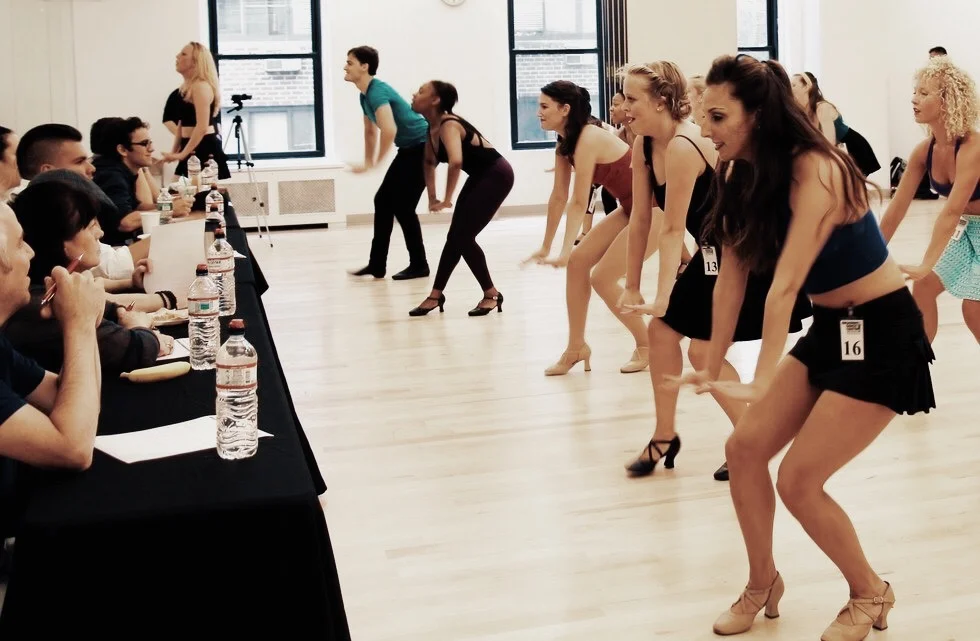10 Tips On How To Structure Your Actor Resume
Aside from headshots, a resume is an actor’s number one marketing tool. A resume is a one-page document that consists of an actor’s credits, accolades, training and more.
When you build your own resume, you’re creating a written representation of who you are as a performer. Here are my top 10 tips to actors on how to structure your resume - including general style rules, categories, and information you MUST include.
1. Place your name on the top of the resume in a large, bold font.
Your name is the most important part of your resume. What good would it do if the casting director can’t read your name?
Stay away from text in script or hard to read font. Making the information on your resume as clear as possible will help with a casting director that is exposed to thousands of resumes a day.
2. Don’t include arbitrary information.
Blonde hair, blue eyes. Brown hair, green eyes. Things like your hair color and eye color are not necessary to include on your resume. Casting directors and creative teams can figure this out just by looking at your headshot on the back.
In general, it’s not necessary to include your weight on your resume. If you do have your weight listed on your resume, I’ve heard from many a casting director that this information can and should be taken off.
3. But don’t forget the basics.
Following your name, make sure to include your contact information (such as your phone number and email address.) If you have an agent, you can place their letterhead at the top with their contact info. Include the web address of your actor website if you have one.
Though you shouldn’t put your hair color, eye color, or weight on your resume, you should definitely include your height. Height is important information for the creative team as they need to be able to envision a stage picture. Some shows will even have height requirements for specific characters.
4. List out your credits in categories.
As of right now, for theatrical auditions I’ve listed my credits in order of importance, beginning with professional regional credits, followed by my educational credits from college, followed by Equity staged readings, new plays and workshops, followed by film/tv credits. If I am auditioning for a role in a television show, commercial, or film, I will use a different resume that has my on-camera credits at the top, and my stage credits at the bottom.
5. Remember to include any awards you’ve received or concerts you’ve performed in.
It might not be that important to include that one time you won an award in middle school, but if you were nominated or won an award for outstanding achievement in something you deem important, include it. Be smart about this. High schoolers who won awards or were nominated for their states high school theatre awards should put that down. Especially if you were able to go to the Jimmy Awards in New York City!
As for concerts, I would really only list a few that explain more about who you are. I love when I see an actor who has performed in a benefit concert or worked with a Broadway caliber musical director.
6. Take off the credits that no longer serve you.
This is especially important if you’ve changed types over the years and those old credits from years past no longer serve you in the audition room. Keep the ones that are meaningful to you - leave the credits on there with well known directors or choreographers.
7. Start chipping away at educational and community theatre credits.
The more theatre you do, the more you will be able to include on your resume. Therefore, keep an eye out for credits you can start to take down as you continue to build your resume. Community theatre credits are only important to include for the roles you played… same thing goes for educational credits from college and high school.
The more experienced you become at your craft, the less important it is to hang on to those educational credits. Start looking for ways to eliminate those credits.
8. Be specific with your training.
If you went to college for musical theatre, dance, acting, or some form of performing arts, be sure to include the name of your college and your major or concentration. If you worked with any notable professors, list them.
If you have a dance background or dance training, include what types of dance, how many years of training, and anything else like the school or the teachers you worked with.
If youre a film/tv actor, list out the training you have relative to on-camera work. Make a separate line for masterclasses with teachers, creatives, and casting directors are familiar with your work.
9. Only list your performance credits on your actor resume.
Your credits as a director, choreographer, lighting designer, set designer, costume designer, stage manager, etc can go on a separate resume. The goal is to only include credits on your actor resume that involved your performance on stage. Other credits will muddy the water for casting directors.
If you’re creatively involved and you are submitting yourself for a directorial position, make a new resume for that.
10. Don’t forget your special skills!
List out anything that you might deem important information for a casting director. What kinds of sports do you play? Football, soccer, basketball, track? Can you skateboard? Rollerblade? Are you proficient at any instruments like piano, guitar, ukelele, violin, bass, clarinet, etc? Are you a marathon runner? Do you hike? Are you double jointed? Can you do any impressions? Are you a cheerleader? Gymnast? Can you do any tricks?
This information is super valuable to creative teams and casting directors. Some roles can require one or more of these skills, so make sure to list them.
Don’t list anything you don’t feel comfortable doing if put on the spot! And definitely don’t lie.
Find this helpful? Be sure to check out the Actor Aesthetic podcast on Apple Podcasts, Google Play Music, Spotify, Stitcher, and more. New episodes every Monday!
























If your life is solely defined by your work, are you really happy?